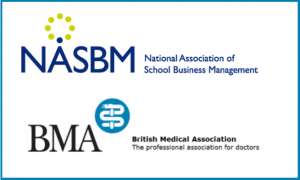All over England, school business management professionals are worried. They want to know if they will have a job at the end of the year. Each day brings a fresh round of claim and counter-claim about the pros/cons of a fully academised school system.
Is there a future for single-site school business managers?
This is not an article about the relative merits of academy trusts versus council-run schools. That’s not the purpose of me writing here. Rather I want to use a simple comparison with the medical profession to consider if there is a future for single site school business managers. The good news is that I believe there is.
But before I look at the need for local, school based business management in MAT landscape, can we agree that school business management professionals should be trained and properly equipped to deliver the tasks required of them? This means that professional associations and employers need to make training available and SBMs need to engage with it. SBMs have a moral duty to the pupils in their care, and to the tax payers who ultimately pay them, to master the skills and knowledge required for their roles.
Right; let’s deal with the issue in hand and the future of school business management. Politicians and officials assert that ‘efficiencies’ can only be delivered by centralising all support functions into a central multi-academy trust (MAT) headquarters. This could lead to a bleak future for SBMs; with perhaps only 10,000 academy trusts across the country, who will get the plum positions in the rush to establish job security?
But I think there is real reason to take heart. A simple medical analogy has the potential to offer much comfort to beleaguered SBMs; what if we compare the single site SBM to a GP and centralised MAT HQ staff to hospital consultants?

GPs work locally. They are skilled professionals with status in their workplace. They lead a multidisciplinary team to support their patients and their families. They have significant knowledge and have status equivalent to that of consultants in the rest of the NHS. They have broad knowledge of a range of issues that enables them to make first-line diagnoses. They carry a lot of knowledge in their heads but no-one bats an eyelid with they reach for a formulary or consult medical databases. They use their professional judgement to determine when to refer a situation on to a specialist consultant.
Hospital consultants work in a centralised location to enable central services to be shared and to harness the input of other specialist disciplines with which they are co-located. They are masters of their own discipline and they work to support and develop specialist clinical protocols and often work on some of the hardest cases.
Both general practice and hospital consultancy are seen as equally valid career paths for medics. Both require extensive training, neither works in isolation from the other. Each is more relevant to the needs of patients in different circumstances. One focuses on seeing the whole patient holistically, one looks in a more focused way at a specific disease.
Transferred to the world of school and multi academy operations, the analogy looks like this:
Traditional single-site SBMs work locally. They are skilled professionals with status in their workplace. They lead a multidisciplinary team to support pupils and staff. They have significant breadth of knowledge and have status equivalent to that of specialist leads back at MAT HQ . They have broad knowledge of a range of issues that enables them to handle the majority of day to day decisions. They carry a lot of knowledge in their heads but no-one bats an eyelid with they email a colleague in a neighbouring school/academy or consult databases such as The Key or the HCSS School Leaders Hub. They use their professional judgement to determine when to refer a situation on to MAT HQ staff.
MAT FDs, COOs, Strategic Business, HR and Facilities Leaders work in a centralised location to enable central services to be shared and to harness the input of other specialist disciplines with which they are co-located. They are masters of their own discipline and they work to support and develop strategic arrangements and trust-wide operational plans. They have extensive experience of working on some of the hardest/most complicated issues.
We can take analogy further. There isn’t just one grade of doctor in the British health system; there are graduates in training, junior doctors, consultants, medical professors who practice medicine whilst simultaneously overseeing teaching, clinical directors and even doctors serving on trust boards. So it is with the emerging school business management profession; there are SBMs at every tier in most of the UK’s largest MATs, in smaller MATs SBMs advise at board level and in community schools, the SBM role features on almost all SLTs now.
In each setting, there isn’t just one SBM; there are other finance, administrative or premises staff assisting the lead practitioner. Just as smaller GP practices share their GPs across a number of village surgeries, so smaller or rural schools increasingly share one or more roles to help deliver effective pupil and school support.
“there will always be a need for local, on-the-spot school business management expertise”
In a fully academised landscape or even one with a significant increase in federated / collaborative partnerships, there will always be a need for local, on-the-spot school business management expertise in addition to the bigger, specialist teams back at MAT HQ.
The challenge for SBMs is to determine where they see themselves fitting in in this new landscape; for some this will mean stepping up to the big roles in MAT HQ and leading large multi-disciplinary teams, for others it will be as skilled professionals in a large team. They will become like qualified doctors working under a consultant in the system. For some, the opportunity of working at a local level in a standalone academy trust or tight-knit geographical cluster of smaller schools will appeal. They will be the GPs in the school system.
The system will need them all.
